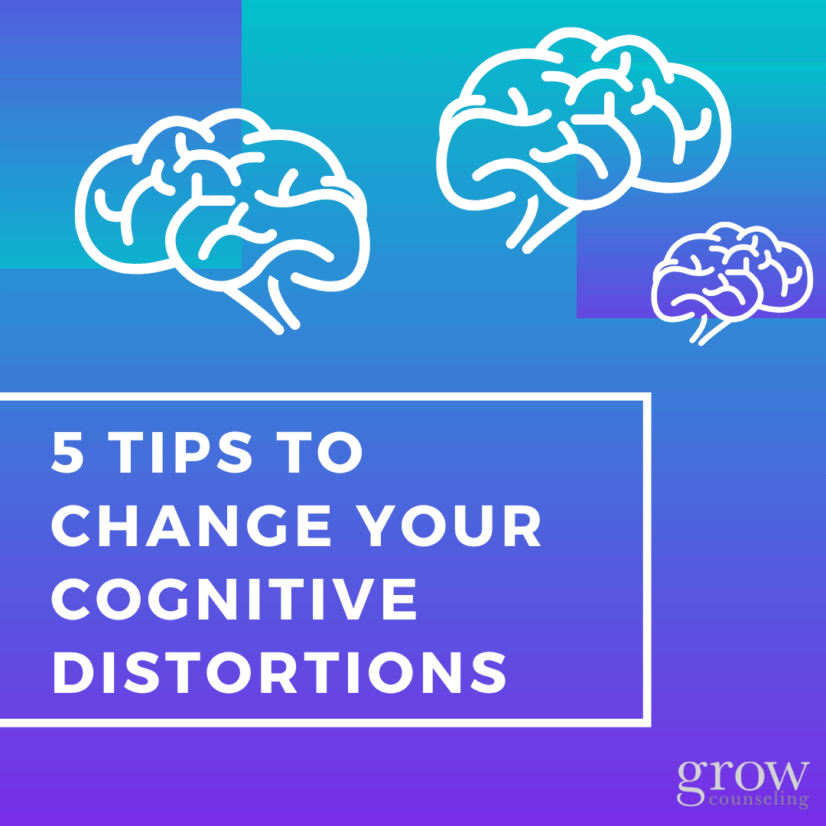In our everyday lives, we experience cognitive distortions. Cognitive distortions are exaggerated or irrational thought patterns that make us believe things that are not really true. They are thoughts that many people have which can also shape the way that we perceive ourselves, others, and the events that happen to us.
However, these distortions can also lead to symptoms of anxiety, depression, guilt, shame, and anger.
Some examples of cognitive distortions include disqualifying the positive things that happen in our lives, overgeneralizing, jumping to conclusions, or engaging in a lot of “should statements” such as, “I should have known better than to do that.” Each of these distortions can lead to the aforementioned feelings, which can cause us to ultimately devalue ourselves.
A way to alter your distortions is to practice changing your perspective.
Here are some ways to do just that:
- Examine the Evidence – Instead of assuming that a Negative Thought is true, examine the actual evidence for it. For example, if you think that you never do anything right, you could list several things that you have done successfully.
- Experimental Method – Do an experiment to test the accuracy of your Negative Thought.
- The Double Standard Technique – Talk to yourself in the same compassionate way you might talk to a dear friend who was upset. Instead of putting yourself down, be nice.
- Thinking in Shades of Grey – Instead of thinking about your problems in black-and-white categories, evaluate things in shades of gray. Instead of thinking of your problems in all-or-nothing extremes, evaluate things on a range of 0-100. When things don’t work out as well as you hoped, think about the experience as a partial success rather than a complete failure. We can LEARN from our “failures.”
- Reattribution – Instead of blaming yourself for a problem, think about all the factors that may have contributed to it. Focus on solving the problem instead of using up all your energy blaming yourself and feeling guilty.
Written by: Jasmine Tyson

